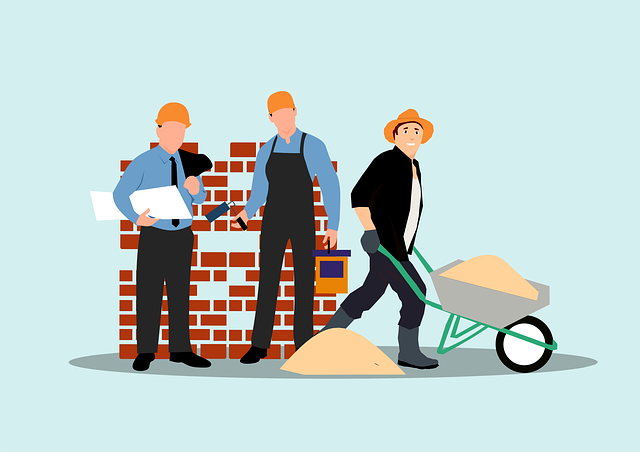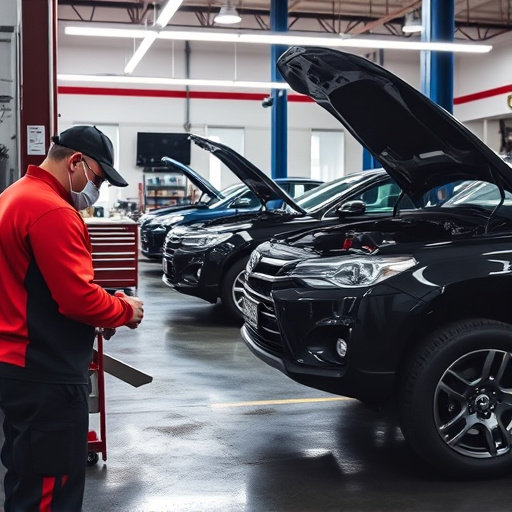Customer safety assurance is a holistic strategy that goes beyond basic safety standards, encompassing all potential risks throughout a customer's interaction with a brand or service, from design to disposal. It includes environmental health factors for overall well-being, such as air quality management and waste disposal, crucial for sustainable practices. In industries like collision centers, strict environmental practices protect public health and foster a circular economy, enhancing customer safety reputation and differentiating businesses in a competitive market. This dual focus on customer safety assurance and environmental stewardship is increasingly important to consumers who prioritize both quality service and ecological responsibility.
In today’s world, ensuring customer safety assurance goes beyond traditional boundaries. It encompasses a holistic view, incorporating environmental health factors that significantly impact well-being. This article explores the intricate relationship between these elements and their role in modern customer safety protocols. We delve into understanding customer safety assurance as a comprehensive approach, examining how environmental factors, often overlooked, act as unseen guardians. Additionally, we discuss integrating sustainable practices to enhance customer safety, presenting a revolutionary strategy for businesses.
- Understanding Customer Safety Assurance: A Comprehensive Approach
- Environmental Health Factors: The Unseen Guardians of Well-being
- Integrating Sustainable Practices for Enhanced Customer Safety
Understanding Customer Safety Assurance: A Comprehensive Approach

Customer safety assurance is a multifaceted concept that goes beyond ensuring a product or service meets basic safety standards. It involves a comprehensive approach to understanding and mitigating potential risks that could impact customers throughout their interaction with a brand or service. This includes not just physical safety, but also environmental health factors that can influence overall well-being.
In today’s context, customer safety assurance encompasses the entire lifecycle of a product or service, from design and manufacturing to distribution and disposal. For instance, in the auto industry, a collision center isn’t just about fixing car bodywork after an accident; it also involves implementing strict environmental health practices during auto collision repair to minimize exposure to harmful chemicals and ensure proper waste management. This holistic view ensures that customers not only receive safe products but also experience services that prioritize their health and contribute to a sustainable future.
Environmental Health Factors: The Unseen Guardians of Well-being

Environmental Health Factors play an indispensable role in ensuring customer safety assurance today. Beyond what meets the eye, these unseen guardians contribute significantly to maintaining a safe and healthy environment for consumers. From air quality management to water safety standards, every aspect is meticulously designed to prevent potential risks. For instance, proper ventilation systems in public spaces reduce the risk of disease transmission, while stringent regulations on chemical usage in industries safeguard against pollution-related hazards.
In the context of services like collision centers and automotive collision repair, environmental health factors are equally vital. Proper disposal of hazardous materials from car dent repair processes ensures ecological balance, preventing soil and water contamination. Efficient waste management systems, including recycling initiatives, contribute to a circular economy. These measures not only protect public health but also foster sustainability, demonstrating a holistic commitment to customer safety assurance in an era where environmental considerations are paramount.
Integrating Sustainable Practices for Enhanced Customer Safety

In today’s world, customer safety assurance goes beyond traditional measures, encompassing a holistic approach that integrates sustainable practices. By adopting eco-friendly methods in vehicle collision repair and car restoration, businesses contribute not only to environmental health but also enhance their customer safety reputation. This strategy involves using environmentally conscious materials and techniques throughout the restoration process, ensuring minimal waste and reduced exposure to harmful chemicals.
Such integration promotes a safer working environment for employees, who are often directly involved in intricate vehicle restoration tasks. Moreover, it offers customers peace of mind, knowing that their vehicles not only undergo meticulous repairs but also adhere to sustainable principles. This dual benefit—enhanced customer safety assurance and environmental stewardship—is a key differentiator in a competitive market, attracting conscious consumers who prioritize both quality service and ecological responsibility.
In today’s world, customer safety assurance encompasses more than just physical security; it involves a holistic understanding of environmental health factors. By recognizing and integrating sustainable practices, businesses can create safer, healthier spaces for their customers. This multi-faceted approach, which combines comprehensive risk assessment with eco-conscious strategies, not only ensures the well-being of patrons but also contributes to a more sustainable future. Through collaborative efforts and innovative solutions, we can elevate customer safety assurance to new heights, fostering environments that are both secure and harmonious with our planet.













